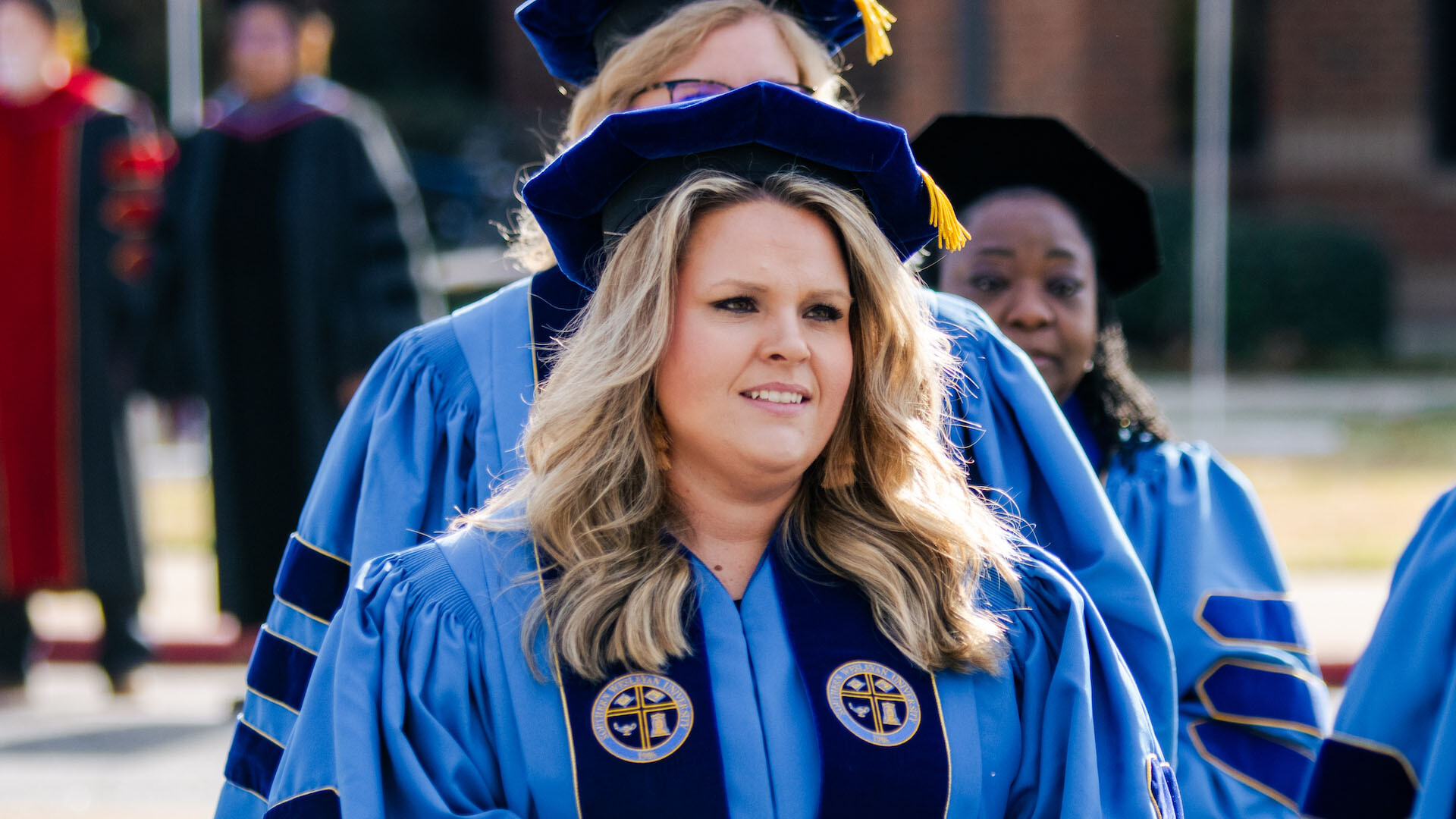
Stephanie Blanton - '24
Small School, Big Impact: Principal’s Research Drives Student Success
When Stephanie Blanton became principal of Cooley Springs-Fingerville Elementary School seven years ago, she inherited a small rural school of 280 students. Today, with enrollment approaching 400, CSF has become a beacon for educational excellence in South Carolina, ranking in the top 0.06% statewide for math achievement and posting exceptional reading scores.
But for Blanton, who graduates with her doctorate in curriculum and assessment from Southern Wesleyan University this December, numbers tell only part of the story.
“It doesn’t happen in a bubble,” she explains. “High academic achievement happens because we have strong climate, culture, and relationships.”
Under Blanton’s leadership, CSF has undergone a cultural transformation. Gone are the days of stern reactions to tardy students. Instead, a welcoming committee greets late arrivals with warmth and breakfast to-go bags. When students miss school, staff members make personal calls home—not to scold, but to check on the child’s wellbeing.
“Kids have to be at school to learn,” Blanton notes. “These changes have created strong relationships with parents and improved attendance.”
Her approach to leadership was shaped by her doctoral research on student-driven learning. Initially skeptical about applying cutting-edge educational theories to early childhood education, Blanton wondered how kindergarteners who struggled to choose between cheese and chicken on their nachos could be expected to drive their own learning.
What she discovered surprised her.
“I watched it happen,” she says. “Students who couldn’t solve basic addition problems learned to use tools like ten-frames, have meaningful conversations with peers, and defend their answers with evidence. They mastered both the content and learning strategies simultaneously.”
This revelation led Blanton to implement research-based curriculum changes throughout the school. Rather than relying on teacher-created lessons, CSF now focuses on proven strategies backed by educational researcher John Hattie’s work on visible learning.
“We’re not trying to do more things,” Blanton emphasizes. “We’re trying to do a few things really, really well.”
The results speak for themselves. Schools across South Carolina now reach out to learn CSF’s secrets to success. But Blanton insists there are no shortcuts.
“When people email asking how we got our scores, I invite them to visit,” she says. “It’s not something I can type out in an email.”
A self-described “workhorse,” Blanton pursued her doctorate while juggling the demands of school leadership and raising three children. She credits her success to supportive SWU professors like Dr. Nathan Street, whose mastery learning approach allowed students to revise work until they achieved excellence.
This experience inspired changes to CSF’s grading policies, creating opportunities for students to work with teachers before and after school to demonstrate mastery and improve their grades.
As she approaches graduation, Blanton remains committed to her role as principal while exploring new ways to share CSF’s story. “The doctoral program has opened so many doors,” she reflects. “I want our school to be a beacon for others.”
For this small-town principal who started her career teaching 4K at nearby Hendrix Elementary, success comes down to a core philosophy: “I strive to focus on loving the students and teachers while maintaining high expectations because our students amaze us every day with their abilities and resilience.”